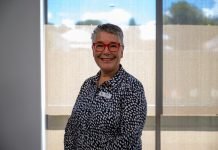A Melbourne-based advocacy group for young people who are living in aged care facilities is running workshops to help people write submissions to the royal commission.
The Summer Foundation, which aims to prevent young people with disability having to enter residential aged care because they have nowhere else to go, is hopeful the royal commission will lead to action.
Summer Foundation chief of staff Carolyn Finis said the individual stories of lived experience will give the royal commission a powerful insight into the issue.
In a briefing paper developed in September 2018, the Foundation said the NDIS is not enabling young people to leave residential aged care and that in some regions, there has been an increase in the number of young people receiving community aged care packages.
“Despite the promise of the NDIS, too many young people are still entering aged care. In some of the areas where the NDIS has been rolled out for the longest time there are more young people entering aged care than before the NDIS began.”
“In Victoria’s Barwon region, there has been an 80% spike in the number of young people using aged care for respite. Across Victoria we have seen 40% growth in the number of young people getting community aged care packages. These big increases are plugging gaps that the NDIS or health system need to be able to fill.”
CEO Luke Bo’sher had hoped the royal commission terms of reference would include preventing young people from entering aged care – not how to make aged care better for young people – which the joint commissioners Richard Tracey and Lynelle Briggs confirmed would be a key focus in their opening statements.
According to The Summer Foundation at end June 2018, 2531 young people living in aged care were active NDIS participants while 3712 were not yet NDIS participants.
Only 23 of the 2,600 young people in aged care had funding for disability accommodation in their NDIS plans.
One of the key problems, it says is the NDIS and health systems do not currently work together in a streamlined way to ensure people with disability have the right support at the right time.
A lack of specialist disability accommodation (SDA) funding, insufficient funding for equipment and support, and a lack of expertise among planners and support coordinators working with people who have high and complex support needs are cited as barriers.
“Successful discharge planning for a smooth and timely transition back into the community for people with complex support needs now requires skills and understanding of the NDIS pathway.
“When there is no immediate pathway home, many young people are forced into RAC leading to poor health outcomes and isolation from family and friends.”
The organisation claims total plan funding for young people in aged care for all NDIS supports is “low, with average plan funding is $105,000, of which over $80,000 will go to the aged care provider as provider reimbursement”.
“There is also a widening gap between what the health system provides and what the NDIS is delivering. This means that not all the person’s support needs are being met through their NDIS plan, however key additional needs (e.g. nursing and clinical supports) are also no longer being provided by the health system.”
The lack of timely access to the housing and support that people with complex disabilities need to live in the community is the other key issue.
The workshops involve a facilitator working one-on-one with a person or family group to help them make their submission to the royal commission.
Approximately 20 submission writing workshops will be held nationwide with numbers limited to six people per session.










